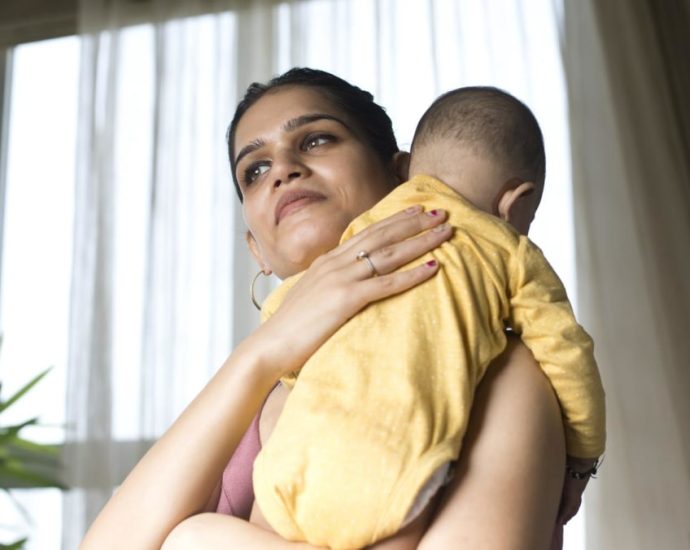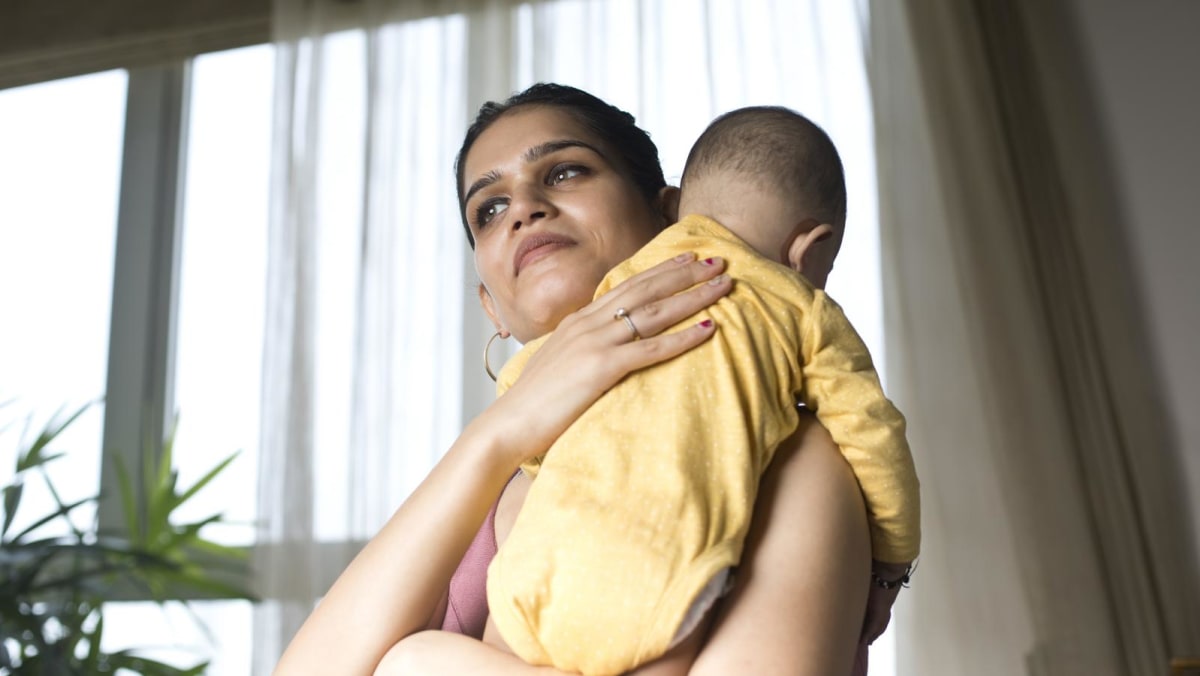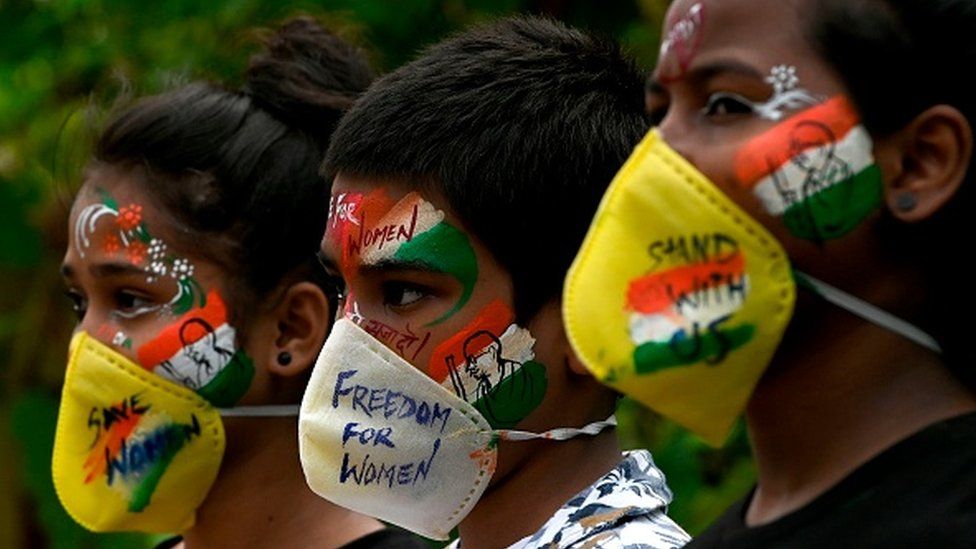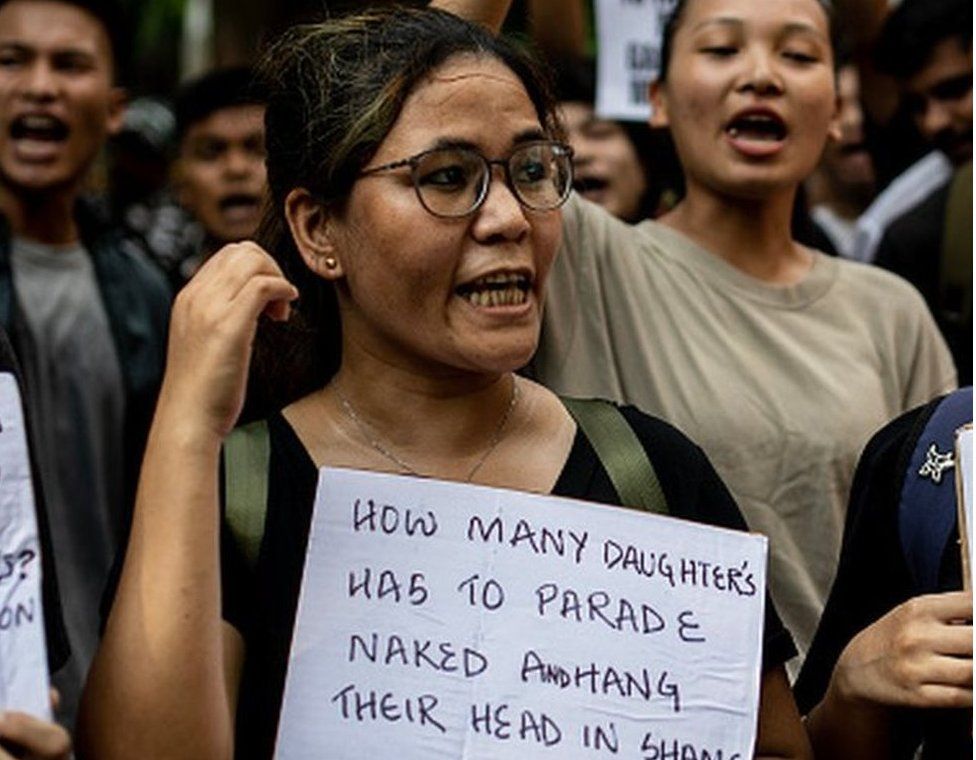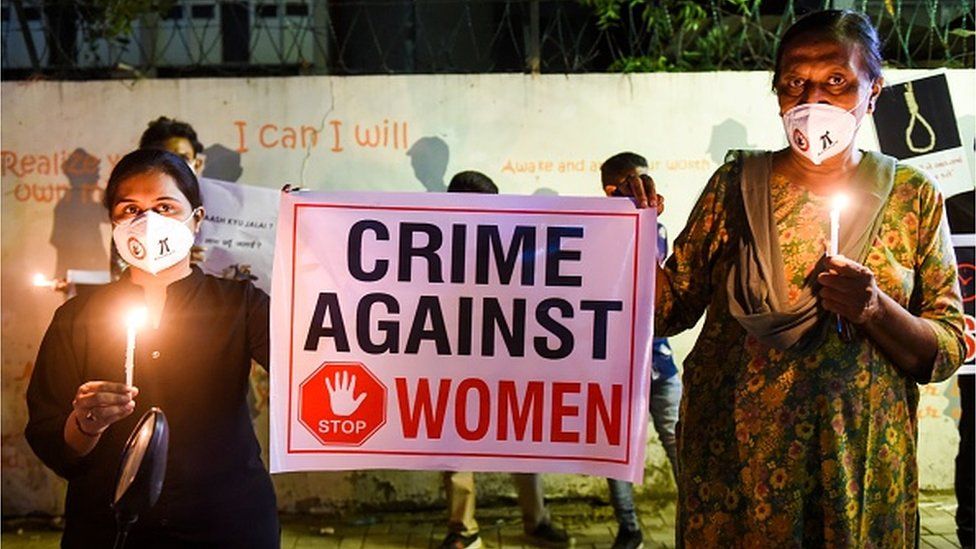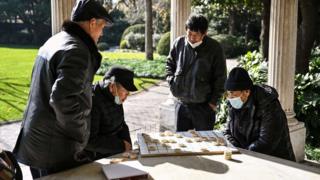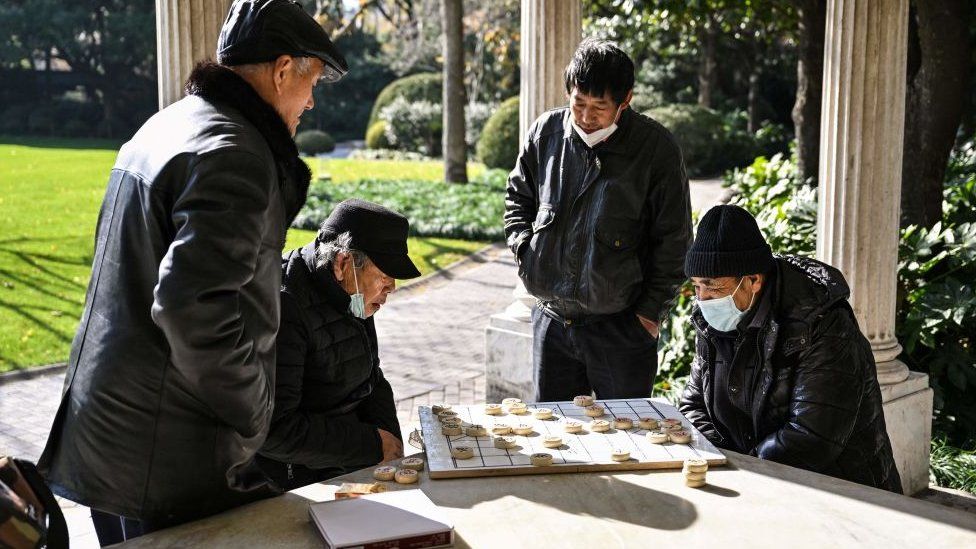Grace Millane’s mother wants to ‘make the world a better place’
 Millane family
Millane familyGrace Millane had dreamed of travelling the world since she was a little girl.
“I found a school project she did about New Zealand and it said ‘I’m going there one day’. And she did get there,” her mother Gillian says, proudly.
Growing up in Wickford in Essex, Grace was a livewire who made friends wherever she went.
“She was my best friend, we would always disappear to the pub for a quick drink and we would go away on holiday together,” Gillian says.

Five years ago, after graduating from the University of Lincoln, Grace set out on a year-long solo backpacking adventure across the world.
After a six-week tour of Peru, she arrived in New Zealand. Less than a fortnight later, on the eve of her 22nd birthday, she was strangled to death by a man she met on a dating app.
Grace was constantly in touch with her family but had not responded to their birthday messages on 2 December, so they reported her missing to the police.
Gillian was recovering from surgery for breast cancer and not able to join the search. Her husband, Grace’s father David, flew out to New Zealand but a week later, their daughter’s body was found in bushland on the outskirts of Auckland.

During a three-week trial, the family had to sit through her killer’s attempts to pass the murder off as “rough sex” gone wrong and his claims that Grace asked to be strangled.
“I felt like Grace was on trial and she couldn’t defend herself. As a parent, I didn’t want to listen to that. It was horrendous.
“You can’t ask for your own death. It is ludicrous this can be used as a defence.”
A jury unanimously convicted him of murder and he was sentenced to life in prison.
The family decided never to mention his name again. “We never say it. It’s a waste of energy. I don’t care about him, I don’t think about him,” Gillian says.
Gillian has since campaigned against the rough sex defence, with the charity We Can’t Consent To This, and has helped to change the law in England and Wales.
Two years after Grace’s murder, Gillian’s husband David died from cancer, which left her in a “really dark place”.

Gillian credits her family and friends, long walks and “lots of counselling” for her still being here today.
“I did contemplate suicide. That is a horrid place to be. But I couldn’t bring any more sadness to the family. Grace had such a bright future and it was taken away from her and us.
“I will never see Grace in a wedding dress or see her grandchildren. This is a life sentence I’ve got. This is me until the day I die. But there is a light and I found it. You have to find that inner strength.”
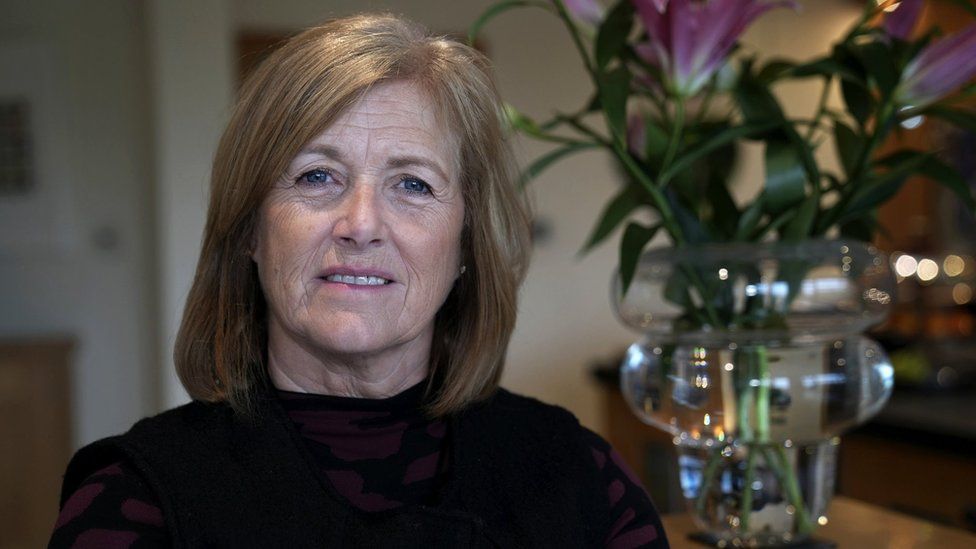
David died during Covid and they could not be together as a family but Gillian later threw a memorial party and it became a turning point.
“A friend dragged me up to dance. I wasn’t sure if it was the right thing to do but I laughed and I looked around the room and everyone was smiling.
“My toes stay in the darkness but the rest of me is facing the sun a bit. Sometimes it goes up to my waist and I do go into that black hole but I have people behind me who support me.”
Christmas is a very difficult time for Gillian, so last year she decided to spend it climbing Mount Kilimanjaro, which was “incredibly emotional”.

“I went from not wanting to leave the house to climbing a mountain on the other side of the world.
“I had to train and be focused. I didn’t realise the power it was giving me and how much it was helping me.
“Everything was aching but I knew Grace and David would be pushing me up there. They wanted to still be here, they didn’t want to go, so I thought ‘right get up there’.”
Gillian left a stone for Grace and David at the top, in tribute to them.
“Whenever I go somewhere special, I put the stones there, so they are travelling. If someone picks a stone up and moves it, they go somewhere else.”
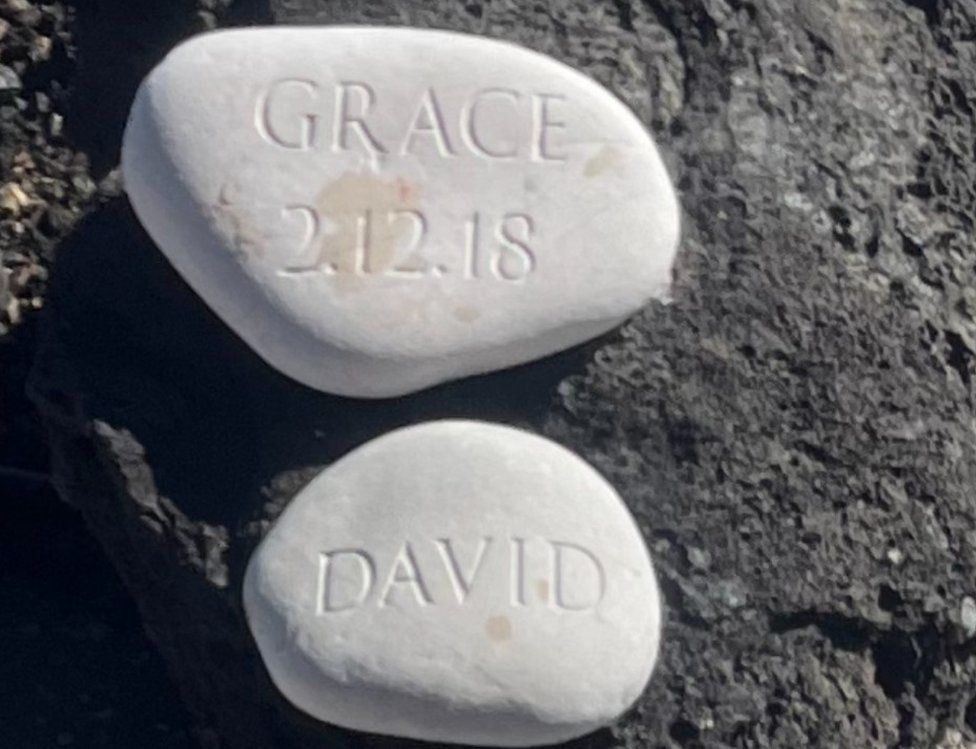
Her efforts raised £33,000 for the White Ribbon charity, which aims to end male violence against women. Gillian received a thank you card from the charity, saying the money had been used to fund education programmes in 65 schools in the Hull area.
“I just want to raise awareness and get that message out there about violence against women so that no other family has to live this life I live,” Gillian says.
Four years ago, with her niece Hannah, Gillian started the charity initiative Love Grace. They collect donated handbags and fill them with toiletries for domestic abuse victims.
So far, they have filled 15,600 bags for women in the UK and across the world and they received an award from the prime minister.
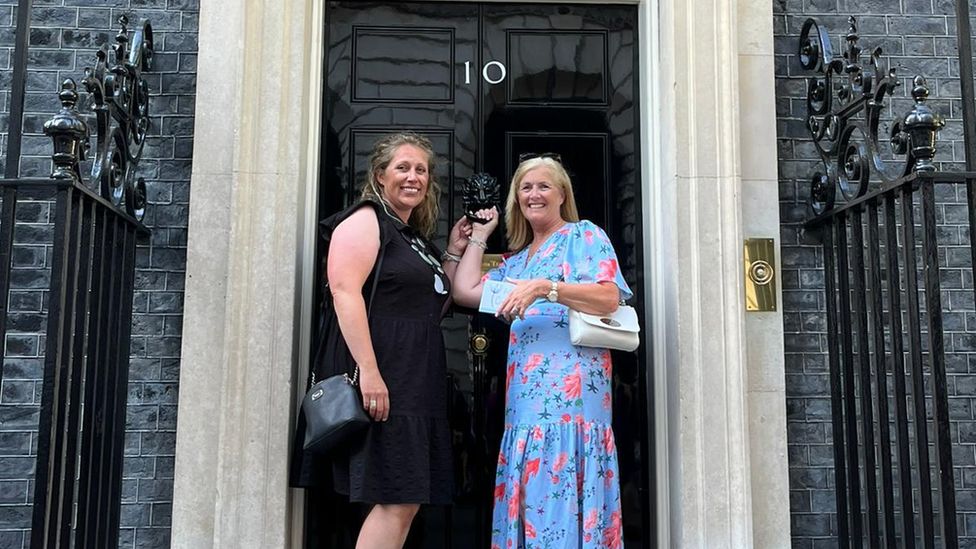
Grace loved handbags, Gillian says, and each bag has a tag on it with her handwriting.
“It’s a simple idea but it has really taken off,” Gillian says. “We were just doing it for our grief so that Grace would never just be a number.
“They get this bag, they are not expecting it and they have gone through hell. We get hundreds of letters from people who have received the bags, it’s heartbreaking.”
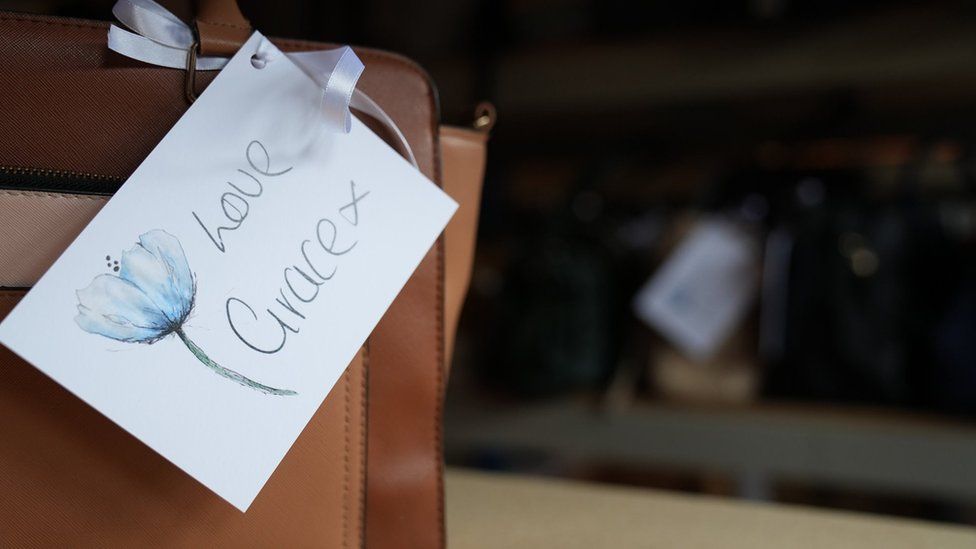
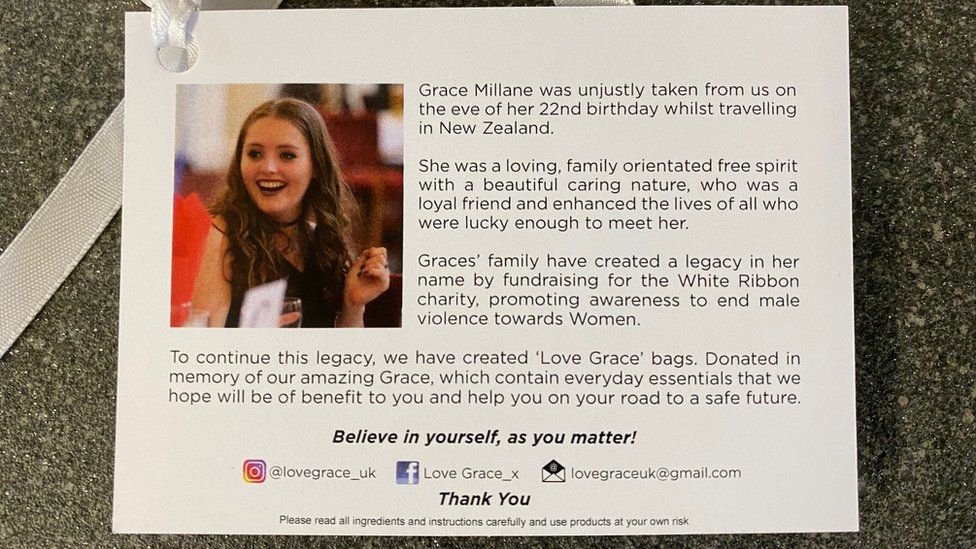
Next year, Gillian is applying for Love Grace to become an official charity and she will be training for a trek to Everest basecamp in September, with a plan to place two more stones there.
One day she hopes to travel to New Zealand, a country which Gillian says has really taken Grace to their hearts.
“I still get loads of messages of support from there. It wasn’t New Zealand or travelling that killed Grace, or anything she did. It was that individual.”
Five years on from her daughter’s death, living without Grace has not got any easier. But Gillian is still trying hard to face the sun.
“I should never have buried my child and certainly she should never have died the way she did. People keep saying I’m really strong but I don’t think so, I’m just a mum.”
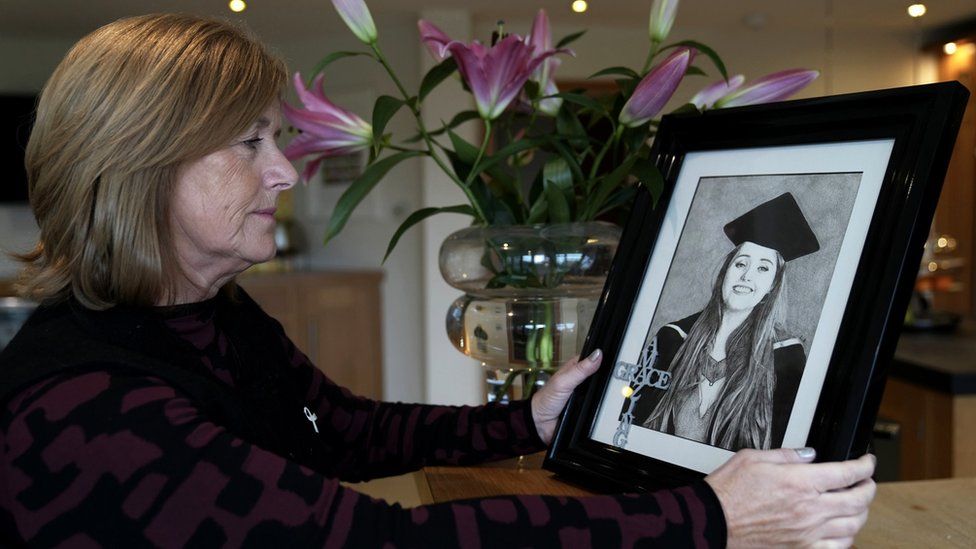
She adds: “I am more resilient than I ever thought I was. I do think David and Grace would be proud. I think Grace would laugh and say these treks are a mid-life crisis.
“I will never get over it but I just know I’ve got to make the world a better place. I want to change things so that no other family has to go through what we go through. That has got to be a good thing.”
If you, or someone you know, is feeling emotionally distressed, BBC Action Line has put together a list of organisations which can help.

Follow East of England news on Facebook, Instagram and X. Got a story? Email [email protected] or WhatsApp 0800 169 1830
Related Topics
-
-
17 November 2022

-
-
-
19 November 2020

-
-
-
10 October 2019

-





